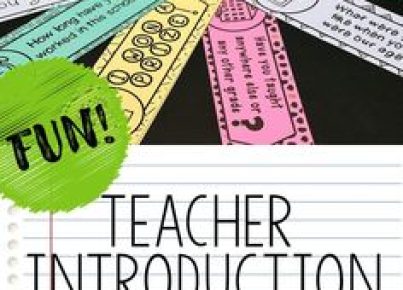Introduction:
As teachers, we often feel the need to apologize for everything, ranging from controversial content in the classroom to unavoidable schedule changes. However, there are certain things that teachers should no longer feel guilty about and stop apologizing for. In this article, we will discuss some of these items and share our insights on why it’s not only acceptable but also necessary to stand up for ourselves as educators.
1. Setting Boundaries:
It’s essential for teachers to set boundaries between their professional and personal lives. Whether it’s not responding to emails after work hours or not engaging in non-academic activities with students, teachers shouldn’t feel compelled to apologize for establishing these limits.
2. Asking for Help:
Teachers are often stretched too thin, juggling multiple responsibilities at once. Asking for help or delegating tasks should never be something to apologize for. It’s a sign of self-awareness and creates an environment where teamwork thrives.
3. Changing a Lesson Plan:
If there’s a need to modify or adjust a planned lesson because it’s not resonating with students or addressing their learning needs effectively, there’s no reason for apology. As educators, we must adapt to ensure that our students receive the best possible education.
4. Enforcing Classroom Rules:
Establishing and following through with classroom rules is crucial to maintaining a conducive learning environment. Teachers should never be apologetic about upholding discipline because it ultimately benefits their students’ educational development.
5. Taking Sick Days:
Everyone falls ill sometimes, and teachers are no exception. It’s essential for teachers to take care of their health without feeling guilty about leaving their students behind temporarily.
6. Holding Students Accountable:
When a student fails to meet expectations or engages in unacceptable behavior, there should be no apology when addressing this issue. Enforcing accountability helps students develop self-responsibility and critical skills necessary for their future success.
7. Prioritizing Your Own Growth and Development:
As educators, we also never stop learning and evolving. Teachers shouldn’t apologize for wanting to pursue professional development opportunities or attending conferences and workshops to stay current in their field.
Conclusion:
Being a teacher comes with a great deal of responsibility but also brings lasting rewards. It’s time to stop apologizing for actions that are ultimately beneficial to both teachers and their students. By standing up for ourselves as educators, we move towards a better future for the entire teaching profession and pave the way for our students’ success.





